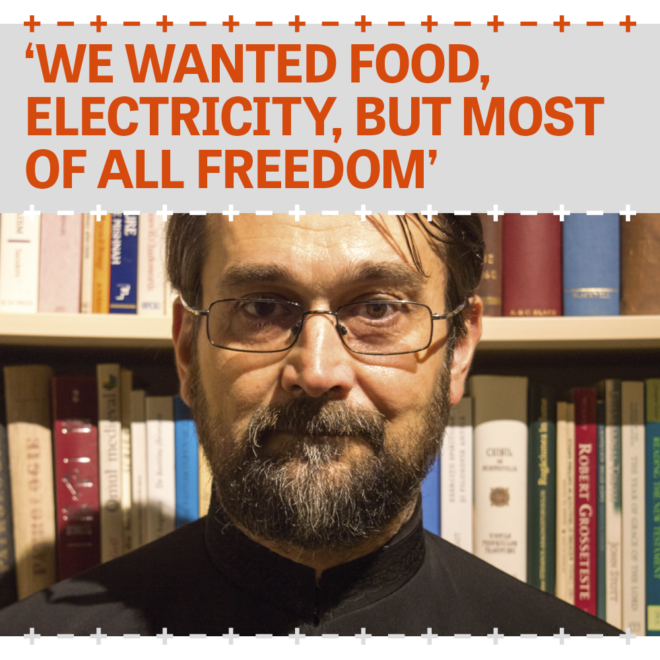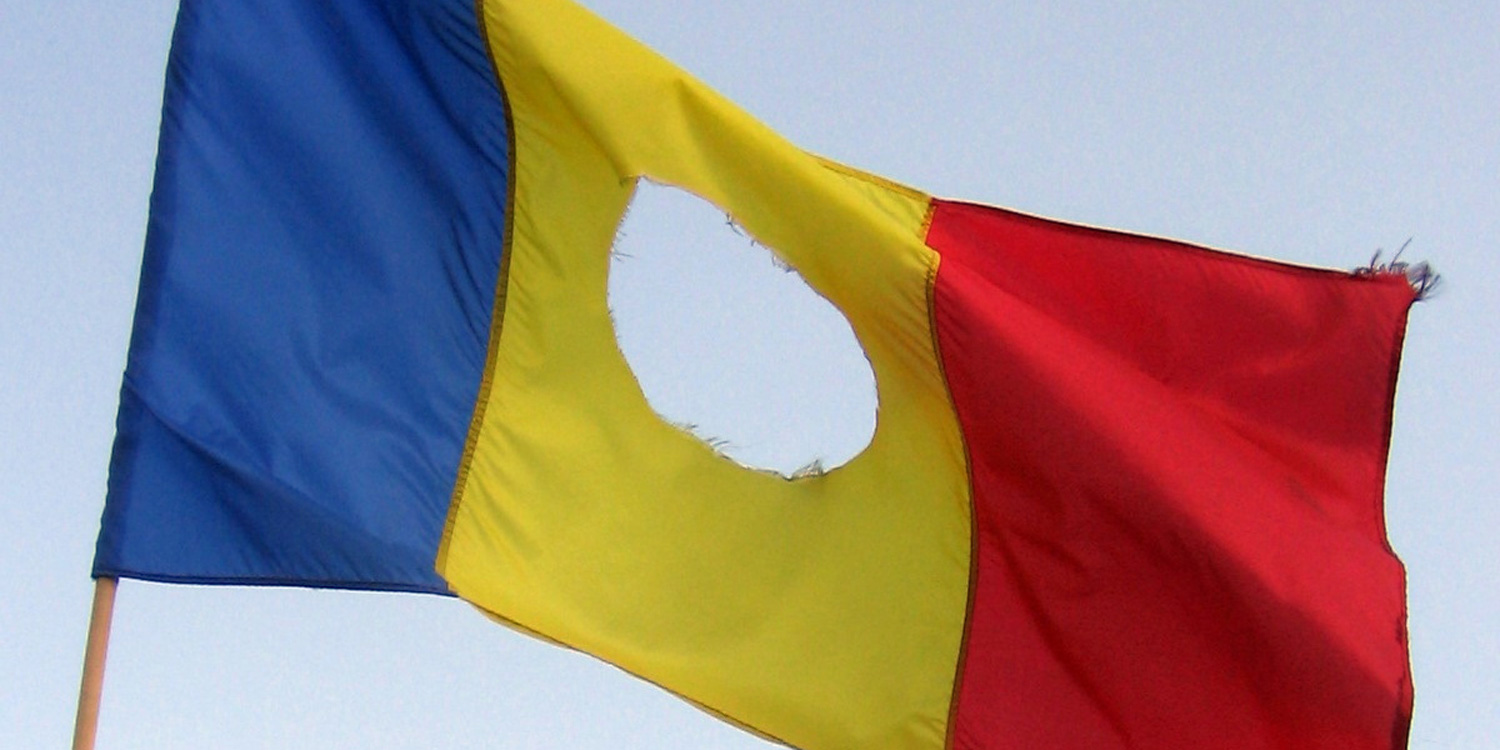Constantin Jinga, Romania, 17 December 1989
“Two lines of soldiers were blocking the way. They were carrying machine guns. One protester asked: ‘Are you really going to fire? Aren’t you Romanians too? Are you going to shoot at your mothers and brothers?’ I was there with a friend. Next to us stood an old man and a mother with her little daughter on her arm.
“My friend had called me in the middle of the night: ‘There are hundreds of people in the square, clamouring for freedom. It’s unbelievable!’ At five o’clock in the morning, I couldn’t wait any longer. I went out in the dark and found a besieged city.
“Throughout Romania, people were waiting for a ‘spark’ those days. We only wanted one thing: an end to the dictatorship. We wanted food, electricity, but most of all freedom. The news of the fall of the Berlin Wall in November travelled through the streets.
“At nine in the morning, I had to be at the university. I had to work in the canteen that day. My parents dropped by because they were worried. I solemnly swore that I would be home at seven o’clock that night. Of course, there was only one thing my fellow students and I could talk about: the protests. We had to do something. We made serious plans to occupy the radio station that night, but first I wanted to see what the situation was so in the afternoon I went into the city. I heard gunshots, but I was sure they had to be blanks.
“I looked the soldiers in the eye. They were even younger than me, maybe just eighteen years old. An officer gave an order, and the soldiers took four steps back – I counted them. I could not believe they had opened fire on us until I saw the old man next to me collapse. I pushed my friend to the ground and fell down on her to cover her with my body. Before I even hit the ground, a bullet pierced my shoulder.
“Now I’m not going to be home on time,’ was the first thing I thought when I woke up in the hospital. The mother and her little girl had not survived. I myself still have problems with my shoulder, but do I regret it? No, not one moment, never! That day was one of the finest days of my life. Cruel, yet so incredibly beautiful.”
The revolution against the dictator’s couple Ceaușescu
The revolution against the Romanian dictator’s couple, Nicolae and Elena Ceaușescu, started in the city of Timișoara on 15 December 1989. A confrontation with the army and security forces culminated in a massacre that killed approximately a hundred civilians. On 20 December, the army joined the side of the protesters, after which Ceaușescu organised a loyalty rally on 21 December, that turned against him. People cut the communist symbol from the national flag, just as the Hungarians had done in 1956. The Ceauşescu’s fled on December 22 by helicopter but were arrested. After a show trial, the couple was executed on Christmas Day. The images of their corpses were seen all over the world. More than a thousand lives were lost in the Romanian revolution.

